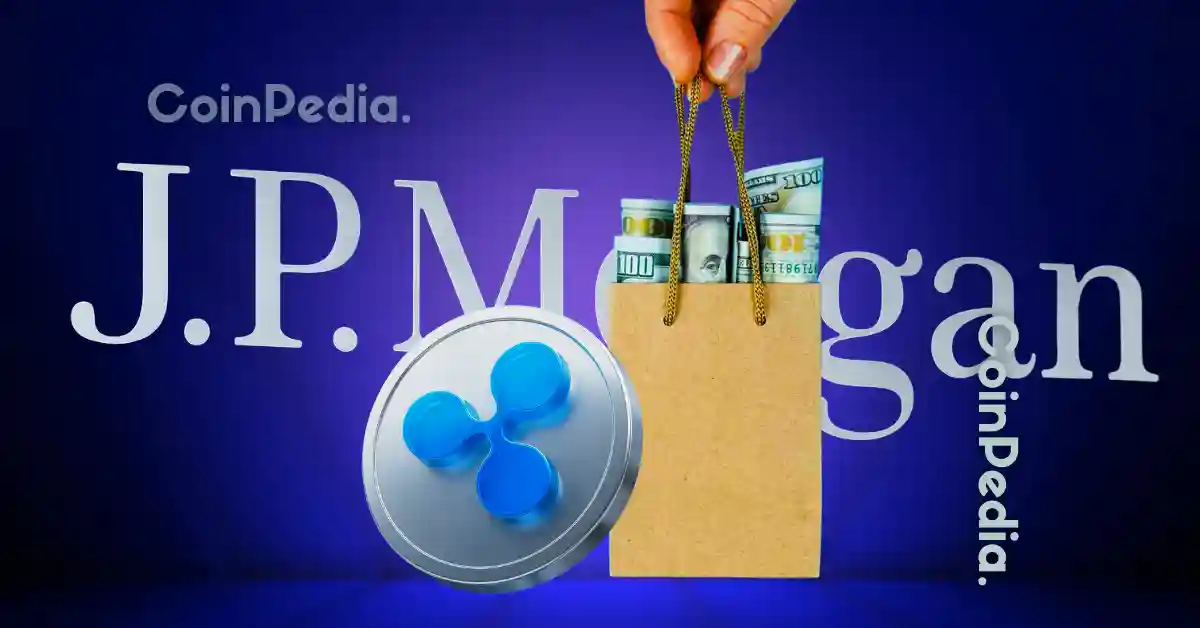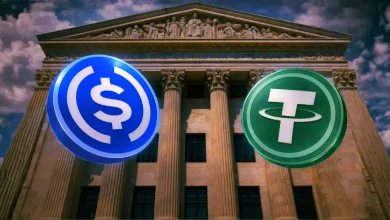
Citigroup, JPMorgan Chase, Goldman Sachs, and Japan's SBI Group are among the top players in blockchain technology.
They aim to create an institutional infrastructure in financial space for trading, staking, and tokenization.
With cheaper and faster services, blockchain will likely become the necessity for future financial infrasture.
Ripple recently released a report revealing how banks are shaping their long-term digital asset strategies with blockchain technology. The report also clarified that Citigroup, JPMorgan Chase, Goldman Sachs, and Japan’s SBI Group are leading the way in traditional finance backing blockchain startups. With cheaper, faster, and more accessible services, the future of financial institutions will depend on blockchain technology.
Citigroup and JPMorgan Among the Prime Players in Blockchain
On August 3, Ripple released a joint report with CB Insights and the UK Blockchain Technology Center, which shows that JP Morgan Chase, Goldman Sachs, and SBI Group are actively using blockchain to create an institutional infrastructure for trading, staking, and tokenization.
These financial institutions are expanding their architecture with blockchain, diversifying their portfolios, enabling crypto payments, offering custody services, tokenizing assets, and more.
Ripple states, “The report features a comprehensive analysis of investment and partnership activities from more than 8,000 blockchain companies and 1,800 banks over a five-year period, including direct investments, mergers and acquisitions, and strategic partnerships.”
Why Are Financial Institutions Adopting Blockchain?
Blockchain is the force behind digital assets like cryptocurrency, stablecoin, and real-world digital assets (RWAs). It enables information to move securely and transparently without requiring a central authority.
Additionally, with modern features, blockchain is creating a more efficient and inclusive financial future that meets the requirements of emerging markets. Blockchain has evolved cross-border payments by reducing intermediaries associated with traditional payment rails, enabling faster and cheaper money transfers across borders.
What’s Next? Future of Financial Institutions Rely on Blockchain
Now, financial institutions are engaging with decentralized finance with the help of blockchains’ recent innovations like XRP Ledger. With increased regulatory clarity in new inventions, blockchain is making the integration of digital assets in financial institutions more feasible for institutions’ longevity.
Ripple says banks shifting from pilots to practice are vital to the global economy, with blockchain providing the security, clarity, and standards needed.
Never Miss a Beat in the Crypto World!
Stay ahead with breaking news, expert analysis, and real-time updates on the latest trends in Bitcoin, altcoins, DeFi, NFTs, and more.
FAQs
Banks use blockchain for faster, cheaper, secure transactions, asset tokenization, and efficient cross-border payments.
Blockchain reduces intermediaries, enabling faster, cheaper, and more transparent international money transfers.
Blockchain will shape banking with secure infrastructure, regulatory clarity, and global standards for digital assets.
Trust with CoinPedia:
CoinPedia has been delivering accurate and timely cryptocurrency and blockchain updates since 2017. All content is created by our expert panel of analysts and journalists, following strict Editorial Guidelines based on E-E-A-T (Experience, Expertise, Authoritativeness, Trustworthiness). Every article is fact-checked against reputable sources to ensure accuracy, transparency, and reliability. Our review policy guarantees unbiased evaluations when recommending exchanges, platforms, or tools. We strive to provide timely updates about everything crypto & blockchain, right from startups to industry majors.
Investment Disclaimer:
All opinions and insights shared represent the author's own views on current market conditions. Please do your own research before making investment decisions. Neither the writer nor the publication assumes responsibility for your financial choices.
Sponsored and Advertisements:
Sponsored content and affiliate links may appear on our site. Advertisements are marked clearly, and our editorial content remains entirely independent from our ad partners.







